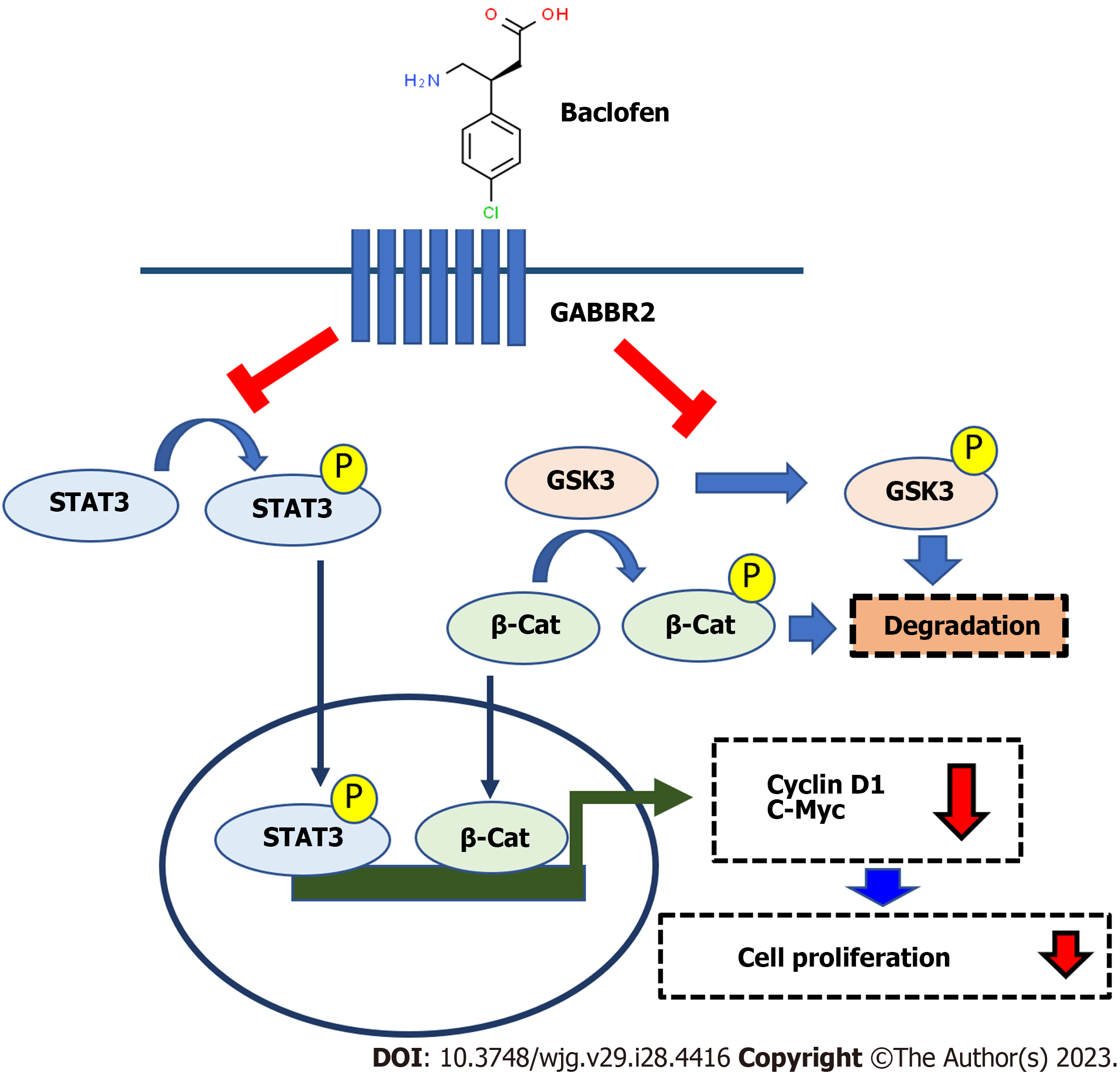Copyright
©The Author(s) 2023.
World J Gastroenterol. Jul 28, 2023; 29(28): 4416-4432
Published online Jul 28, 2023. doi: 10.3748/wjg.v29.i28.4416
Published online Jul 28, 2023. doi: 10.3748/wjg.v29.i28.4416
Figure 6 Schematic summary of the effects of high glucose on γ-aminobutyric acid B2 receptor expression and the effects of baclofen on cholangiocarcinoma cells.
High glucose induces the expression of γ-aminobutyric acid B2 receptor (GABBR2) in cholangiocarcinoma (CCA) cells. The treatment of baclofen, a GABBR2 agonist, to CCA cells inhibits phosphorylation of glycogen synthase kinase 3, resulting in the activation of the kinase activity which further phosphorylates β-catenin. Phosphorylated β-catenin is subjected to degradation preventing its function on promoting cell proliferation via c-Myc and cyclin D1 expression. On the other hand, activated GABBR2 by baclofen also inhibits phosphorylation of signal transducer and activator of transcription 3 (STAT3). The inhibition of STAT3 phosphorylation also suppresses its functions as a transcription factor for c-Myc and cyclin D1 expression. Activating GABBR2 by baclofen, thus, suppresses the proliferation of CCA cells. GABBR2: γ-aminobutyric acid B2 receptor; GSK3: Glycogen synthase kinase 3; STAT3: Signal transducer and activator of transcription 3.
- Citation: Saengboonmee C, Sorin S, Sangkhamanon S, Chomphoo S, Indramanee S, Seubwai W, Thithuan K, Chiu CF, Okada S, Gingras MC, Wongkham S. γ-aminobutyric acid B2 receptor: A potential therapeutic target for cholangiocarcinoma in patients with diabetes mellitus. World J Gastroenterol 2023; 29(28): 4416-4432
- URL: https://www.wjgnet.com/1007-9327/full/v29/i28/4416.htm
- DOI: https://dx.doi.org/10.3748/wjg.v29.i28.4416









